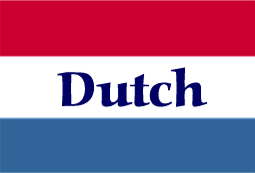ROUNDUP: Dutch announce 6-billion-euro economic stimulus plan
 Amsterdam - The Dutch government on Wednesday announced a 6- billion-euro (8.1-billion-dollar) economic stimulus plan that will see investment followed by cost-cutting in 2011 to tackle the economic crisis.
Amsterdam - The Dutch government on Wednesday announced a 6- billion-euro (8.1-billion-dollar) economic stimulus plan that will see investment followed by cost-cutting in 2011 to tackle the economic crisis.
Prime Minister Jan Peter Balkenende, presenting the plan to parliament, said the funds would be spent over six years, primarily on infrastructure projects, unemployment prevention and sustainable energy over the next six years.
The government would also introduce cutbacks of 5 billion euros as of 2011 that are expected to result in an annual 0.5 per cent reduction in the budget deficit, which in 2010 is expected to amount to 5.7 per cent of gross domestic product (GDP).
"We are making a substantial investment in the future of The Netherlands by investing in economic opportunities and the resilience of Dutch society," Balkenende said.
The plan focuses on the recovery of employment and production, while maintaining a healthy government budget, he said.
Balkenende emphasized that the new investments came on top of the 80 billion euros the government has already spent in the financial sector since September, as well as an estimated 50 billion euros resulting from increased unemployment payments and less tax income.
Balkenende also announced that the legal retirement age would be raised from 65 to 67 years, adding that "social cooperation is necessary to tackle the crisis."
The announcement came an hour after the largest Dutch labour union FNV, which had participated in negotiations on economic crisis measures on Tuesday, gave details of the plan at a press conference. The union said it had negotiated the postponement of any change in the legal retirement age.
Geert Wilders, the leader of the liberal-rightist Freedom Party PVV described the measure as "anti-social."
The stimulus plan amounted to "three times zero," with "no extra money for Dutch citizens, no substantial budget deficit reduction, no cutbacks on leftist hobbies," the latter being a reference to international cooperation money.
Leftist Greens Party leader Femke Halsema criticized the abolition of airport tax and plans for the construction of more highways, saying she would have preferred to see additional investment in education and labour market reforms.
Finance Minister Wouter Bos on Wednesday meanwhile stressed the need to "invest in areas that will provide opportunities to The Netherlands once the crisis ends."
The plan does not include any substantial reforms to regulate the financial sector or propose any measures to improve the supervisory function of the central bank (DNB) and financial watchdog AFM.
The two institutions have come under strong criticism in recent months from experts and the public alike for allegedly failing to prevent the problems in the financial sector. (dpa)